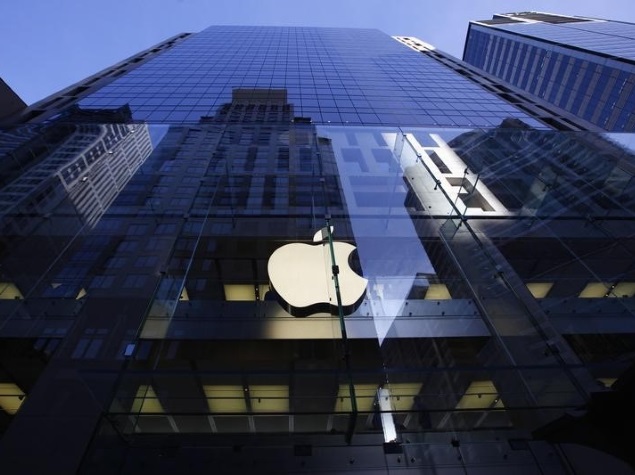- Home
- Mobiles
- Mobiles News
- Apple Pacts in Canada May Have Raised Mobile, Wireless Prices: Court Filing
Apple Pacts in Canada May Have Raised Mobile, Wireless Prices: Court Filing

Canadian consumers may have ended up paying higher prices for cellphones and wireless services because of contracts between Apple Inc's Canadian unit and domestic carriers, the Canadian Competition Bureau said in a court filing this week.
The iPhone has given Apple extraordinary bargaining power with mobile carriers around the world, and the Canadian watchdog wants to know if it used that leverage to force domestic operators to sell rival devices at a higher price than they otherwise would have.
The Competition Bureau is seeking details on volume commitment, minimum order quantities, and any special treatment that Apple may have sought from the carriers, the filing showed.
"Of course it is natural for them to want to push in that regard, and let's see if they pushed too hard," said Colin Gillis, a technology analyst at BGC Partners in New York.
The affidavit filed on Tuesday by Vincent Millette, who is heading the Competition Bureau's investigation, and obtained by Reuters on Friday listed several ways the agreements with the phone companies may have prevented or lessened competition.
It formed part of the agency's filings with the Federal Court on Tuesday seeking documents from Apple as part of an investigation into possible anti-competitive behavior by the company. The bureau said on Thursday it had not reached a conclusion of wrongdoing at this time.
(Also See: Apple and IBM Unveil First Round of Business-Centric iOS Apps)
Millette affirmed that the Apple Canada contracts may have:
- discouraged wireless carriers from reducing the price of other handsets, or offering other enhancements
- discouraged them from offering other handsets
- encouraged them to maintain or boost the price of wireless services for competing handsets
- dampened upstream competition between handset suppliers.
"The contractual obligations (with the carriers) may therefore increase the price Canadian consumers have paid, are paying or will pay for handset devices and wireless services," he said in his affidavit.
The Competition Bureau is looking for documents as far back as July 2008, when the iPhone first was introduced in Canada.
The agency informed Apple in April that it was investigating the contracts with the phone companies. Apple has provided some records already, and wireless carriers have sent over 2,500 records in response to requests from the bureau made between June and August.
An Apple spokeswoman was not available to comment.
© Thomson Reuters 2014
Get your daily dose of tech news, reviews, and insights, in under 80 characters on Gadgets 360 Turbo. Connect with fellow tech lovers on our Forum. Follow us on X, Facebook, WhatsApp, Threads and Google News for instant updates. Catch all the action on our YouTube channel.
Related Stories
- Samsung Galaxy Unpacked 2026
- iPhone 17 Pro Max
- ChatGPT
- iOS 26
- Laptop Under 50000
- Smartwatch Under 10000
- Apple Vision Pro
- Oneplus 12
- OnePlus Nord CE 3 Lite 5G
- iPhone 13
- Xiaomi 14 Pro
- Oppo Find N3
- Tecno Spark Go (2023)
- Realme V30
- Best Phones Under 25000
- Samsung Galaxy S24 Series
- Cryptocurrency
- iQoo 12
- Samsung Galaxy S24 Ultra
- Giottus
- Samsung Galaxy Z Flip 5
- Apple 'Scary Fast'
- Housefull 5
- GoPro Hero 12 Black Review
- Invincible Season 2
- JioGlass
- HD Ready TV
- Latest Mobile Phones
- Compare Phones
- Tecno Pova Curve 2 5G
- Lava Yuva Star 3
- Honor X6d
- OPPO K14x 5G
- Samsung Galaxy F70e 5G
- iQOO 15 Ultra
- OPPO A6v 5G
- OPPO A6i+ 5G
- Asus Vivobook 16 (M1605NAQ)
- Asus Vivobook 15 (2026)
- Brave Ark 2-in-1
- Black Shark Gaming Tablet
- boAt Chrome Iris
- HMD Watch P1
- Haier H5E Series
- Acerpure Nitro Z Series 100-inch QLED TV
- Asus ROG Ally
- Nintendo Switch Lite
- Haier 1.6 Ton 5 Star Inverter Split AC (HSU19G-MZAID5BN-INV)
- Haier 1.6 Ton 5 Star Inverter Split AC (HSU19G-MZAIM5BN-INV)






![[Partner Content] OPPO Reno15 Series: AI Portrait Camera, Popout and First Compact Reno](https://www.gadgets360.com/static/mobile/images/spacer.png)









